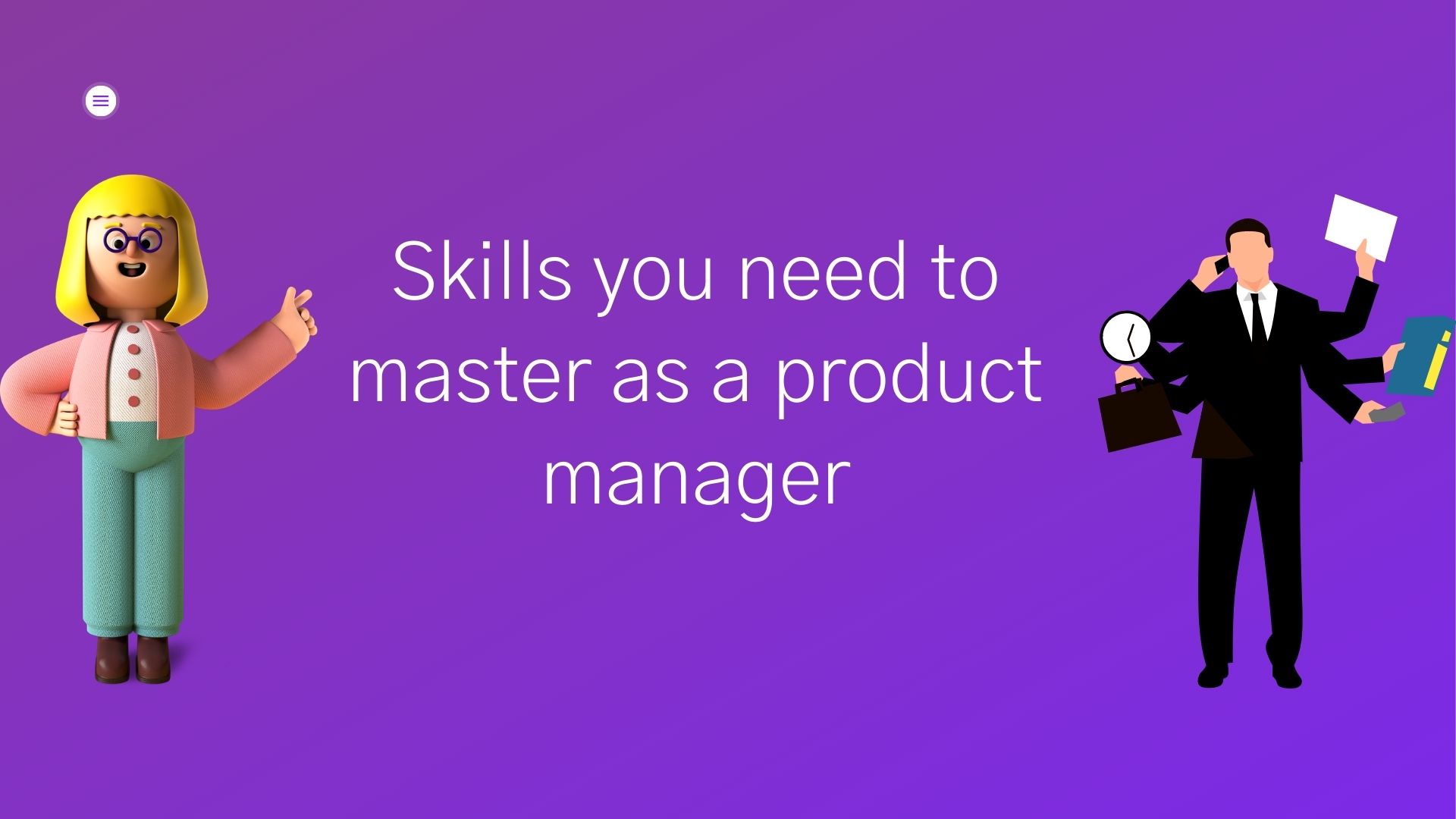
Product management roles have come from far. As such, the roles and responsibilities of a product manager 5 years ago are vastly different today, especially in the wake of the recent pandemic.
All the best product managers possess a series of business, technical, marketing, and UX skills. Indeed, product managers must be capable of performing several duties simultaneously while overseeing a team of engineers and developers involved in bringing the products in question to life.
As the person in charge of overseeing the development of products from inception to completion, product managers must remain cross-functional across almost all departments. Consequently, a good product manager ensures that all team members are working to realize the organization’s objectives.
The roles of one product manager will differ greatly from the next but there are specific components that make one an effective leader. Here are 5 skills that one needs to master as a product manager especially in 2021:
Ability to adapt
If there’s anything that 2020 has taught us is that businesses of all shapes and sizes must learn how to adapt. Otherwise, they risk lagging behind and even worse, failing. That’s why the best product managers will learn how to adapt especially in times of turmoil and unpredictability.
A product manager must thus adapt and take up roles that one wouldn’t usually be concerned with as the role of product manager continues to evolve. During unpredictable scenarios such as the current pandemic, product managers may be called upon to take up more responsibilities while not having the same level of resources one was exposed to pre-pandemic.
And it’s not just pandemics and catastrophes that require product managers to remain adaptable. Technology never stays the same; a fact that product managers know all too well. Whether it has to do with virtual reality or the newest tech craze on the horizon, product managers must constantly strive to know more and more because that’s what breeds better, faster results.
Delegate, delegate, delegate
Product teams thrive when product managers empower them to make independent decisions especially when it comes to coming up with ideas and solving complex challenges. Product managers that hover and micromanage every aspect of the development process rarely get the best out of what their product people have to offer. A lack of independence only works to stunt the team’s growth and will more often than not cause the team’s performance to suffer.
Don’t get us wrong. No one, especially no one in charge, is comfortable with relinquishing control. However, it is critical because a product manager cannot be everywhere every time. As the development process continues to grow and the product comes to fruition, the business is bound to scale. In such an instance, a product manager will need to surround him or herself with a strong team that supports the business objectives.
People management
Great product managers are people managers. Product managers should serve as team leaders whose primary objective is organizational alignment. Product managers must strive to create harmony and trust between the various departments in an organization while earning the respect of the stakeholders and investors at the same time.
The development process of a product can never be effortless and straightforward if the product manager lacks a strong relationship with the team. And most of all it requires emotional intelligence. A good product manager must know their team members inside out, what makes them tick, how different staff members respond to criticism and pressure, their aspirations, and things of that nature.
That’s the only way to build a team with a sense of responsibility and respect for one another. When one team or department is down, the others will step up to make things right. That’s the power of a cohesive team that looks up to an effective leader.
Marketing skills
When products start catching the attention of the right companies and investors, the business turns to product managers to guide the product’s journey to market and distribution. Successful product managers must therefore serve as ambassadors of their products from conception through production to the launch.
That’s why product managers must be well versed in marketing. They must understand the audience being targeted, as well as the completion that’s out there. This requires one to think strategically, which starts by asking the right questions and finally defining the product roadmap. Product managers must forecast the time needed for each stage of the development process so that they can be ready to position their products.
Soft or advanced technical skills
Product managers don’t need to be versed in every technical aspect of the product cycle. However, having some basic understanding regarding how things work can help a product manager plan properly as well as communicate effectively with the team. At the very least, a good product manager should learn the names and purposes of the technical tools and software that one’s company utilizes.
Of course, the type of product being developed, the target users and the type of business creating the product are all factors that will help to determine how much technical knowledge a product manager requires. For instance, say a product manager is dealing with a data science product that features machine learning algorithms.
In such an instance, a product manager will need to have some deep technical knowledge. Not only to comprehend how the product will be built, but also so that one can effectively communicate with the customers and investors what the product is all about.
Final Thoughts
Whether you’ve been a product manager for decades are just now looking to enter the field, there will always be something new to learn and a new challenge to overcome. That’s what the job calls for.
The good news is that there is no perfect product or the perfect product manager. But if you are looking to establish yourself as an efficient product manager, these skills discussed above will allow you to learn, adapt, and keep growing as your duties and responsibilities evolve with the times.


